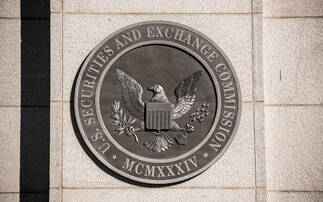Can you give a brief overview of your strategy in terms of what you are trying to achieve for investors, your investment process and the make-up of the investment team?
The investment objective of the Strategy is to seek long-term capital appreciation and strong risk-adjusted returns. Our strategy seeks to invest in high-quality businesses by identifying companies with a dominant market share, strong fundamentals, and a responsible use of cash. The team believes that these companies, which it calls "durable franchises," are likely to outperform over the long term and that short-term investors often fail to recognize the value of durable franchises. This creates opportunity, and the team's view is that investors and companies maximize value creation with a long-term perspective. The team defines durable franchises as companies with: defensible business models with differentiated products and services; a conservative financial profile, including organic cash flow generation; lower leverage; high returns on capital; strong balance sheets; and stability; and management teams that think and act for the long-term interests of all constituents. Our belief is that companies with these attributes have the resources to be adaptable and are able to grow regardless of the surrounding market environment
The team is comprised of Matthew McGeary, Jason Wulff, Betsy Pecor, Matthew Spitznagle, and E.G. Woods. We have a flat structure with no star managers which creates a unique setting and arrangement that encourages independent thinking. Ideas are sourced by each of the sector analysts, and decisions are made as a team rather than by one key decision maker, therefore limiting "key man" risk.
How have you been trying to weather the storm caused by the Covid-19 pandemic and what could be the longer-term implications for your strategy?
Our focus on durable franchises, companies which typically generate organic free cash flow and have lower leverage, performed well during the onset of the pandemic as investors sought out safety and stability. Naturally, our resolute focuses on these businesses allowed us the weather storm. Moreover, these businesses which entered the pandemic with a long-term perspective and with consideration of all constituents have not only been able to manage well through the pandemic, but they are also well-positioned heading into a period of renewed growth.
Rather than running from the volatility, we embraced it as it gave us opportunities to initiate positions in durable franchises that we believed were trading far below their fair value. Our disciplined fundamental research and valuation processes allowed us to make dispassionate trading decisions.
Can you identify a couple of key investment opportunities for your fund you are playing at the moment in the portfolio? This could be at a stock, sector or thematic level.
One theme that we have observed is the value of intangible assets and how that affects a company's valuation. We've looked back at history to see what corporate America has looked like from the perspective of hard assets versus intangible assets such as intellectual property. We're seeing in a lot of different industries that the focus is really off the hard assets and onto these intangibles, which tend to require less capital and therefore drive higher margins and cash flows. When you talk about the impacts of COVID and the companies that are flexible and better able to adapt, a lot of that reflects the dynamic of these intangible assets. We think a lot about this in the context of our ESG (environmental, social, and governance) analysis, looking at how companies treat their employees, how engaged their employee base is, and how meaningful that is when we get to a situation like we are in now, where you really need a very engaged, nimble, flexible, dynamic workforce. We've certainly seen the separation between the companies that get it and the companies that are having a harder time.












